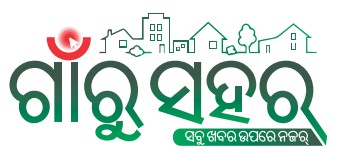Bhubaneswar, Oct. 31: A week-long workshop designed to impart knowledge and training in advanced analytical techniques utilized for characterization of pharmaceuticals, sponsored by Government of India, commenced at the School of Pharmaceutical Sciences (SPS), faculty of pharmaceutical sciences of Siksha ‘O’ Anusandhan (SOA) Deemed to be University here on Monday.
Thirty one candidates representing 22 different universities and 19 states are attending the workshop— an initiative of the Department of Science and Technology (DST) and organised under the auspices of the Institute of Chemical Technology (ICT), Mumbai— which is known as the Synergistic Training Programme Utilizing the Scientific and Technological Infrastructure (STUTI).
The inaugural session of the workshop was attended by Prof. P.R. Vavia, Director of ICT’s Bhubaneswar campus, who was the chief guest and Mr. Jaidev Bhatt, Programme Manager of DST STUTI ICT.
Prof. Vavia said that as the analytical field was growing today, the trainees should utilize the available equipment and think what they could do to ensure value addition without repeating what others were already doing. “This programme will be immensely fruitful and beneficial for you and help you gather a lot of knowledge,” he said.
Prof. Pradipta Kumar Nanda, Pro-Vice Chancellor of SOA, who attended the inaugural programme as guest of honour, said the workshop would provide the opportunity to the trainees to interact with their peers and the experts. They should try to benefit from this programme, he said.
Dr. Sudam Chandra Si, Dean of SPS and Coordinator of the programme, welcomed the trainees while Prof. Laxmidhar Maharana conducted the session.
Altogether 14 resource persons from nine different institutes would interact with the trainees while an equal number of mentors from SOA would facilitate the technical worshops at the university’s state-of-the-art research facilities located at SPS, Centre of Biotechnology, Institute of Medical Sciences and SUM Hospital and Institute of Technical Education and Research.
The major techniques to be discussed in the workshop would include isolation and extraction methods, High performance liquid chromatography, Atomic absorption spectroscopy, Fourier-transform infra-red spectroscopy, Differential Scanning Calorimetry, X-ray Diffraction, Gas Chromatography Mass Spectrometry, Enzyme-Linked Immunosorbent Assay, Real Time Reverse Transcriptase-Polymerase Chain Reaction, Microbiological assay technique, Animal handling and assay techniques.

